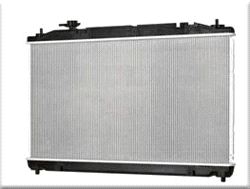Consumables
Renewably Sourced Plastic Debuts the Hood

Friday 27. March 2009 - The plant-derived DuPont Zytel 610 nylon resin that debuts on DENSO Corporations new automotive radiator end-tank illustrates the benefits of close collaboration throughout the value chain, and marks the first use of DuPont renewably sourced plastic in mechanical components exposed to the hot, chemically aggressive underhood environment.
“The strategy of collaborating throughout the value chain is critical when cost-effectively bringing high value solutions to the market,” said Chris Murphy, global accounts director, DuPont Engineering Polymers. “This development truly illustrates a great way to get from today to tomorrow.”
In this case, DENSO engineering and DuPont R&D embarked on development of a new material for use in a higher performance radiator end-tank that meets auto manufacturers needs for sustainable solutions. The new material, developed jointly by DENSO and DuPont in a proprietary process, contains 40 percent renewable content by weight derived from the castor bean plant, and meets requirements for exceptional heat resistance, durability and road salt resistance – attributes DENSO says were difficult to deliver with many resins containing a high percentage of plant-derived ingredients.
“Todays business climate, with demands for innovation in the face of intense cost pressures, is driving the engineering community to rethink the design and manufacture of automotive components and systems,” said Patrick Ferronato, global development and marketing director, DuPont Automotive Performance Materials.
